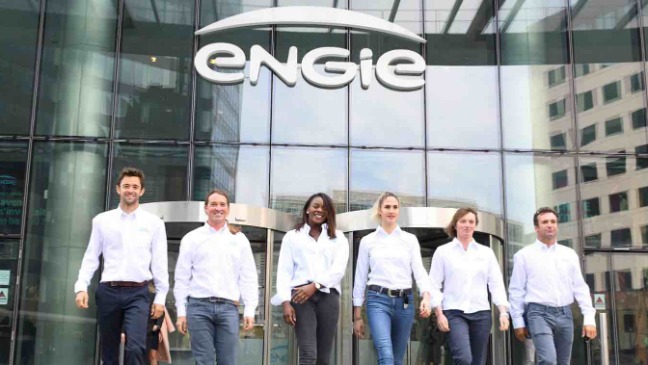Solar Impulse Partner
Fondation ENGIE
www.engie.com


ENGIE is a global reference Group in low-carbon energy and services
ENGIE’s purpose is to act to accelerate the transition towards a carbon-neutral economy, through reduced energy consumption and more environmentally friendly solutions, reconciling economic performance with a positive impact on people and the planet. To implement this transition, we rely on our key businesses as gas, renewable energy, and services, to offer competitive solutions to our customers. These solutions made to measure include smart, energy-efficient equipment, powered using carbon-free energy, drastically reducing consumption. We act through-out the value chain: strategy, design, engineering, energy-efficient asset construction, digital platforms, operations management, financing and outcome assurance
A shared vision
A shared vision for a positive-impact partnership
This partnership came about quite naturally since ENGIE and Solar Impulse share a common vision: reconciling positive impact and economic performance. ENGIE and its experts have joined forces with the Foundation to identify 1000 clean, efficient and profitable solutions. On the one hand, ENGIE has placed the triple P approach – Planet, People and Profit – at the heart of its strategy, factoring climate and social impact into its company's performance criteria, in addition to more conventional economic criteria. On the other hand, the Solar Impulse Foundation wants to bridge the gap between ecology and economy, reducing the impact on the environment while promoting economic development. The shared aim is therefore to pool such clean solutions and to speed up their development.
In order to bring about a more sustainable world, we must take concrete actions. Solutions to reduce CO2 emissions already exist. As a major actor in the energy sector, ENGIE has a key role to play and we intend to contribute to massively expand them.
Jean-Pierre Clamadieu, Chairman of the Board of ENGIE

Their commitment
A purpose that embodies the Group's environmental and social commitments
Acting to accelerate the transition to a carbon-neutral economy, through solutions that are more energy-efficient and more respectful of the environment.
ENGIE has 2 key objectives relating to climate change for 2030 : Reduce greenhouse gas emissions from the energy production by emissions from the energy production by 52% and increase the share of renewable energies in the power production capacity mix to 58%.
ENGIE has decided to increase its proportion of women managers to 50%, and its proportion of trainees among its employees by 10% for 2030. The Group's strategy is structured around 3 business priorities: accelerating investments in renewables, strengthening investments in urban infrastructure and refocusing client solutions on activities serving the energy transition.
ENGIE key figures









